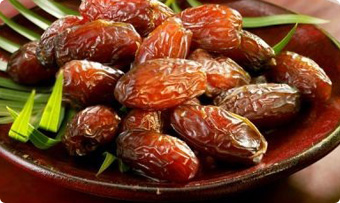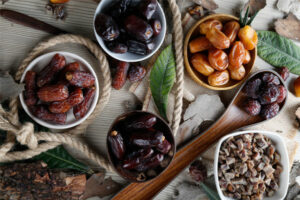The Significance of Kurma: Dates’ Global Importance

In this post let’s talk about Kurma (dates) and its significance in many countries. Dates hold a special place in various cultures around the world, and their importance goes beyond their delicious taste. In this article, we will delve into the cultural, nutritional, and religious significance of Kurma and explore why they are highly valued in many countries. Join us on this journey to uncover the diverse reasons why dates are important globally.
The Cultural Significance of Kurma
Dates have deep cultural roots in many countries, playing a vital role in traditions, celebrations, and daily life. Let’s explore some of the cultural aspects:
1. Culinary Delights
In many countries, dates are integral to traditional cuisines and culinary practices. They are used in a variety of dishes, from savory recipes to sweet delicacies. Dates add a unique flavor and texture to dishes, making them a beloved ingredient in traditional cooking.
2. Festivals and Celebrations
Dates are often associated with religious and cultural festivals. For example, during the Islamic holy month of Ramadan, dates hold immense significance as they are traditionally used to break the fast. In countries where Eid al-Fitr is celebrated, dates are exchanged as gifts and enjoyed as a symbol of abundance and prosperity.
3. Symbol of Hospitality
In many cultures, offering dates to guests is a gesture of warm hospitality. Dates are often served as a welcoming treat to visitors, representing generosity and friendship. This practice reflects the cultural importance of dates in fostering connections and strengthening social bonds.
The Nutritional Benefits of Kurma
Beyond their cultural significance, dates are highly nutritious and offer several health benefits. Let’s explore the nutritional value of dates:
1. Rich in Fiber and Nutrients
Kurma is packed with essential nutrients, including fiber, potassium, magnesium, and vitamins. They provide a natural source of energy and contribute to overall health and well-being.
2. Natural Sweetness and Sustained Energy
Due to their natural sugar content, dates offer a healthy alternative to processed sweeteners. They provide a quick energy boost and can help satisfy cravings without causing a rapid spike in blood sugar levels.
3. Antioxidant Properties
Dates are rich in antioxidants, which help protect the body against oxidative stress and inflammation. These properties contribute to overall health and may have potential benefits for various conditions.
The Religious Importance of Kurma
Religions such as Islam and Judaism hold dates in high regard due to their religious significance:
1. Islamic Traditions
In Islam, dates are mentioned in religious texts and hold a special place in Islamic traditions. They are associated with Prophet Muhammad, who is said to have recommended the consumption of dates for their nutritional and spiritual benefits.
2. Jewish Observances
In Judaism, dates are an essential component of the seven species mentioned in the Torah. They are featured in religious observances and rituals, symbolizing fertility and abundance.
The significance of dates in other religious traditions?

Conclusion
Kurma (dates) holds immense importance in many countries due to its cultural, nutritional, and religious significance. From being a staple ingredient in traditional cuisines to symbolizing hospitality and prosperity, dates play a vital role in various aspects of life. Furthermore, their rich nutritional profile and health benefits make them a valuable addition to a balanced diet. Whether enjoyed during celebrations, incorporated into recipes, or consumed for their natural sweetness, dates continue to be cherished globally for their diverse virtues. Embrace the significance of Kurma and savor the delights and benefits that dates offer.


